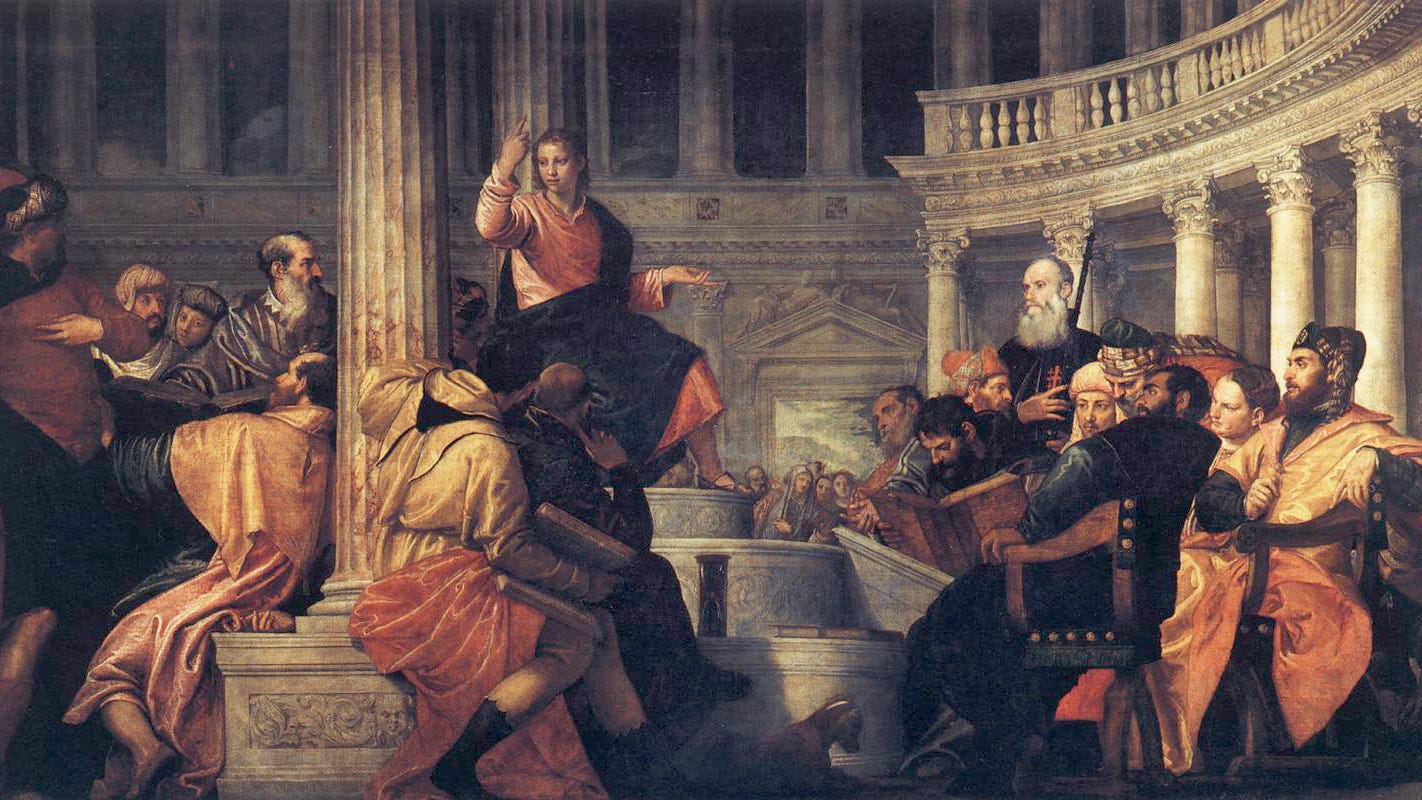The rationale of Jesus’s opponents.
On the Jewish religio-political leadership and their conspiracy to rid themselves of Jesus.

The Genevan reformer, John Calvin, is famous for (among an abundance of other things) his assertion that the heart of man is “a perpetual forge of idols” (55). This oft-quoted line from the eminent French theologian has been verified throughout the ages in mankind’s own hostile disposition towards the things of God. Man’s refusal to accept the authority of God and insistence that he is his own sovereign has led to a bevy of deceitful and corrupt ideologies and philosophies. The dogmaticians of vernacular anthropology assert self-governorship, self-sufficiency, and self-rule in every facet of life. Man’s stubborn quest for autonomy and self-preservation is, perhaps, nowhere better seen than in John’s Gospel and the assembly of the Sanhedrin (John 11:47–53).
Jesus’s reputation was spreading rapidly. His penchant for upsetting the colloquial interpretations of the law through the proclamation of the unexpected message of grace and forgiveness in his own name had not only served to amass a considerable following but had also captured the attention of his detractors. The Pharisees and Sadducees, many of whom held seats on the Sanhedrin — the supreme religio-political body in Jewish society at the time — were those who sought to disparage and deconstruct Christ’s message, pouncing at any perceived misstep, hoping to finally entrap the so-called Messiah in a web of falsified interpretations and affirmations (Mark 8:11). However, at every turn, Jesus had an answer for them, often leaving them speechless in the wake of his insistence upon grace.
Early squabbling between Jesus and the Pharisees can be clearly seen when Jesus decides to dine with some undesirable, untouchable folk (Matt. 9:10). The issue at the heart of this scene is the Pharisees’ interpretative affinity for matters regarding secondary cleansing. The spurning of Jesus’s interaction and association with the company of “tax collectors and sinners” exposes the Pharisees’ failure to grapple with the ramifications of the law — a theme which will be carried throughout each of Jesus’s dialogues and discourses to the Pharisees in Matthew’s Gospel (Matt. 12:1–14; 15:1–20; 19:3–9; 22:15–46; 23:1–39).
Furthermore, the burgeoning friction between Jesus and the Jewish religio-political leaders of the day is evidenced in Jesus’s messages which reverse the generally accepted social status structure. As the influence of Hellenistic sociology and philosophy became more mainstream, the affinity for prestige became a normative way of life. First-century Jews, living under Roman rule, were heavily impacted by Greek philosophy, leading to a citizenship that was obsessed with acquiring and keeping a “well-to-do” social status. Thus, when Jesus reverses these notions by commending and calling for the care of the “little ones” and the “least of these,” he’s scandalizing the colloquial societal norms regarding class system and structure (Matt. 10:42; 18:1–20; 20:25–27; 25:31–46). By implementing the denominations “little ones” and “least of these,” Jesus is illustrating that “a life of sacrifice and service involves renouncing status ambitions by emulating those with little or no status” (Brown, 582).
Consequently, when Jesus does the unthinkable and resurrects a man who had been dead for “four days” (John 11:39), the Pharisees’ and Sadducees’ collective abhorrence for Christ was amplified to a fever pitch. In the wake of Lazarus’ resurrection, the Sanhedrin is hurriedly convened in order to determine what to do with this rabble-rousing grace preacher and Galilean life-giver. “What are we going to do since this man is doing many signs?” they clamor callously. “If we let him go on like this, everyone will believe in him, and the Romans will come and take away both our place and our nation” (John 11:47–48). Not wanting to concede an inch of power, the Jewish religio-political leadership conspires to rid themselves of their problem altogether. “From that day on they plotted to kill him” (John 11:53).
By this, one is made to see the insidious escalation of prideful disbelief and its eventual end. Jesus’s opponents — elsewhere referred to as a “brood of vipers” — each failed in their own unique way to appreciate and comprehend the purpose of Jesus’s ministry. Their contemptuous campaign against the gospel, borne out of their political clout and spiritual authority, and bred out of a vitriolic sense of self-preservation, failed to grasp the weight of Jesus’s words and works, seeing them only as the traitorous rumblings of rebellion. They were concerned only with themselves: their position, their rank, their authority. Such is the hostility of unfaith and the rancorous disgrace of the Jewish religio-political leadership and their campaign against the free salvation of God.
Works cited:
J. K. Brown, “Gospel of Matthew,” Dictionary of Jesus and the Gospels, 2nd edition (Downers Grove, IL: InterVarsity Press, 2013).
John Calvin, Institutes of the Christian Religion, translated by Henry Beveridge (Peabody, MA: Hendrickson Publishers, 2008).


